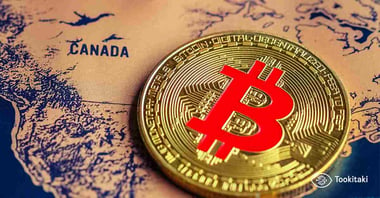Cryptocurrencies are legal tender and are handled as such in Japan.
Cryptocurrency exchanges are legal and are required to register with the Financial Services Agency (FSA).
Is cryptocurrency legal in Japan?
In Japan, cryptocurrencies are legal. “Crypto-assets” are payment mechanisms that are not denominated in fiat money and can be used to pay unidentified people, according to the Payment Services Act (PSA). Cryptocurrencies have no limitations on who may own them or invest in them. The PSA recognises Bitcoin and other digital currencies as legal property in Japan, which boasts the world’s most advanced regulatory climate for cryptocurrencies.
Who is in charge of Japan’s cryptocurrency regulations?
The Financial Services Agency (FSA) is in charge of overseeing crypto-asset exchange service companies in Japan. The FSA, on the other hand, recognises and collaborates with two cryptocurrency self-regulatory organisations: the Japan Virtual Currency Exchange Association (JVCEA) and the Japan Security Token Offering Association (JSTOA). The JSTOA is a crowdsourcing organisation that focuses on token sales and other types of crowdsourcing.
What are the anti-money laundering (AML) cryptocurrency regulations in Japan?
In Japan, exchange providers must follow the anti-money laundering regulations specified in the Act on the Prevention of the Transfer of Criminal Proceeds. The Anti-Money Laundering and Counter-Terrorism Financing Guidelines, which have been in effect since February 19, 2021, add to this framework.
Exchange Providers are defined by the PSA as businesses that provide any of the following crypto-asset exchange services:
- Crypto asset sales, purchases, and exchanges.
- Acting as an intermediary, broker, or agent in the acts listed in 1;
- Money management for customers in connection with activities 1 and 2;
- Management of crypto assets for someone else’s benefit.
Crypto exchanges in Japan are obliged to register and comply with traditional AML/CFT duties as a result of these rules. The National Tax Agency declared in December 2017 that earnings on cryptocurrencies should be classified as “miscellaneous income” and investors should be taxed accordingly. Japan is the world’s largest market for Bitcoin. Amendments to the PSA and the Financial Instruments and Exchange Act (FIEA), which took effect in May 2020, are also among the most recent rules. The modifications change the word “virtual currency” to “crypto-asset,” impose stricter limits on managing users’ virtual money, and tighten regulations on crypto derivatives trading. The PSA now applies to cryptocurrency custody service providers (those that do not sell or buy crypto assets), whereas the FIEA applies to cryptocurrency derivatives enterprises.
What about NFTs?
In principle, non-fungible tokens (NFTs) will not be regulated under financial rules because they have no economic utility as a means of payment due to their unique properties.
Regulations for Cryptocurrency Exchanges
Japan’s cryptocurrency exchange policies are also forward-thinking. Only businesses with a competent local Financial Bureau are allowed to operate as cryptocurrency exchanges under the PSA; however, foreign cryptocurrency exchanges are allowed to register if they can demonstrate an equivalent registration standard in their host country.
While exchanges are allowed in Japan, crypto rules have become a national issue following a succession of high-profile thefts, including the legendary Coincheck robbery of $530 million in digital currency. The Financial Services Agency (FSA) of Japan has increased its efforts to regulate trading and exchanges. Amendments to the PSA now require cryptocurrency exchanges to register with the FSA in order to operate – a process that can take up to six months and imposes stricter cybersecurity and anti-money laundering/counter-terrorist financing requirements.
Exchange-based laws in Japan are largely intended to maintain market integrity, and users, investors, and exchanges must adhere to particular record-keeping standards and submit an annual report to the Financial Services Agency (FSA). Following modifications in 2016 and 2019, this requirement was expanded to incorporate client identity checks and to include custodial services providers.
Regulations for Cryptocurrencies in the Future
Although Japan maintains a welcoming environment for cryptocurrencies, mounting AML worries are prompting the FSA to consider more regulatory measures. Both the JVCEA and the STO Association seek to advise as-yet unregulated exchanges and encourage regulatory compliance, and both promise to play an important role in defining crypto industry best practices and assuring compliance with the recently adopted legislation.
According to a report from Nikkei Asia, the FSA will introduce new legislation in 2022 that seeks to limit the issuance of stablecoins to banks and wire transfer companies. This is part of an endeavour by the agency to strengthen its hold on the stablecoin industry in order to safeguard consumers from asset-backed stablecoins like Tether.
The FSA’s action is comparable to previous recommendations in the US. The President’s Working Group on Financial Markets, in collaboration with other authorities, including the Office of the Comptroller of the Currency (OCC), issued a report on stablecoins in November 2021, which contained suggestions to treat stablecoin issuers like banks.
According to the source, the law would also contain measures to combat money laundering using stablecoins by giving the agency more authority over intermediaries like wallet providers and implementing more know-your-customer (KYC) safeguards.
Learn how our solution helps companies that handle crypto be AML compliant.
Anti-Financial Crime Compliance with Tookitaki?



